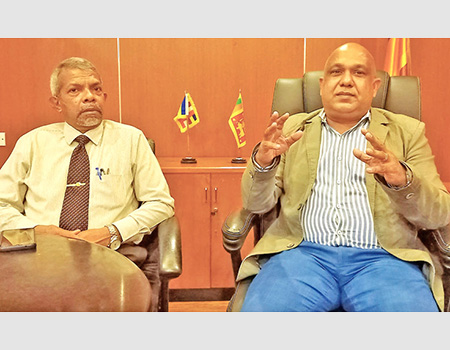
Please Share your Email if you Wish to Receive the Golden Tips & Tales Newsletter from History of Ceylon Tea Website

Tea Small Holders will bring in increased USD 200 million export revenue from tea for 2021 in comparison to last year despite controversy of chemical fertilizer.
Chairman Tea Small Holdings Development Authority (TSHDA) Dr. Thushara Priyadharashana said that last year the Smallholders segment contributed to around USD 285 million from total exports of tea (despite a severe drought) and in the first six months of 2021 the segment has contributed to around USD 325 million export revenue.
“Smallholders hope to achieve around USD 500 million export revenue for 2021.”
Last year the total tea industry accounted for USD 1.4 billion earnings (from a total of USD 14 billion) which is more than 10% of total foreign exchange earnings of Sri Lanka. Local tea economy also contributes to more than one million employment. Tea small Holders (less than 10 acres) contribute about 75% of the total tea production of 300 million Kg.
The COVID pandemic indirectly helped Tea Smallholders as during lockdowns the owners were confined to homes and they nurtured their tea plantations with greater interests and have also engaged in replanting as well.
There are over 450,000 Tea Small Holders with 1.5 million dependents. He said that on a directive of Minister Kanaka Hearath who is keen to grow tea cultivation, the government has increased subsidies from Rs. 310,000 to Rs. 500, 000 per acre while for replanting this amount has been increased from Rs. 500,000 to 630,000. This includes a Rs. 5,000 monthly allowance 24 months to compensate for income loss during the re plantation process.”
One of the major issues faced by the sector is the lack of nursery plants and as a solution 25 million additional Plants are provided to farmers through ‘subsidized nurseries’ while private nursery owners will offer additional 25 million plants.
The Government is also investing Rs. 675 million to create ‘micro Irrigation system projects’ to ensure continuous supply of water required for cultivation. “This is scientifically proven to yield a 30% increase in production.”
Though technology and machinery is used globally Sri Lanka is backward in this area. “The Government will invest Rs. 455 million annually to train 450 youth annually on deployment of new technology and machinery.”
Plants are also underway for intercropping tea with coconut plantations and this is proving to be successful. He also said that they have initiated several organic fertiliser projects with tea smallholders in the last six months and these have yielded a 20% increase crop.
General Manager TSHDA Dhammika Mahipala said that steps are being taken to provide dolomite fertilizer to tea smallholders at subsidized prices through all societies to improve soil fertility.
“In addition we are also working with the Samurdhi movement to promote tea cultivation.”
Comments
(In keeping with the objectives of this website, all COMMENTS must be made in the spirit of contributing to the history of this estate, planter or person i.e. names, dates & anecdotes. Critical evaluations or adverse comments of any sort are not acceptable and will be deleted without notice – read full Comments Policy here)